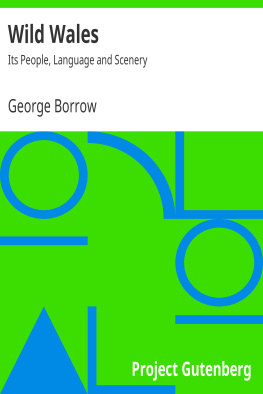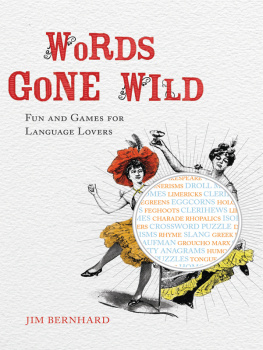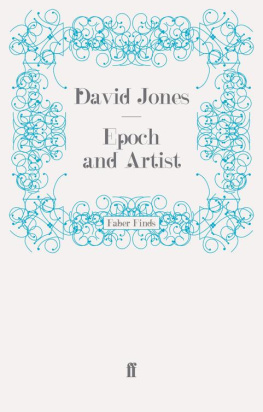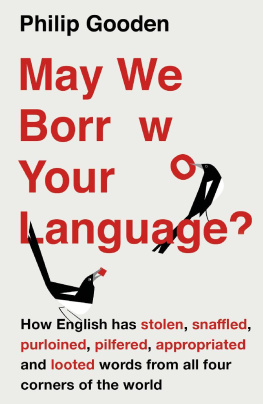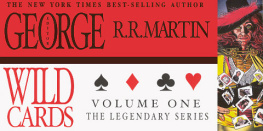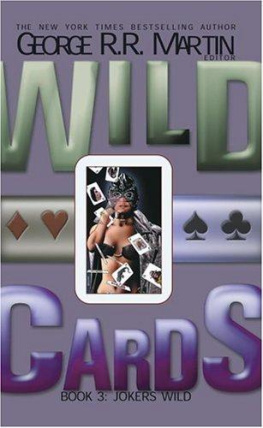George Borrow - Wild Wales: Its People, Language and Scenery
Here you can read online George Borrow - Wild Wales: Its People, Language and Scenery full text of the book (entire story) in english for free. Download pdf and epub, get meaning, cover and reviews about this ebook. year: 1996, genre: Art. Description of the work, (preface) as well as reviews are available. Best literature library LitArk.com created for fans of good reading and offers a wide selection of genres:
Romance novel
Science fiction
Adventure
Detective
Science
History
Home and family
Prose
Art
Politics
Computer
Non-fiction
Religion
Business
Children
Humor
Choose a favorite category and find really read worthwhile books. Enjoy immersion in the world of imagination, feel the emotions of the characters or learn something new for yourself, make an fascinating discovery.
- Book:Wild Wales: Its People, Language and Scenery
- Author:
- Genre:
- Year:1996
- Rating:3 / 5
- Favourites:Add to favourites
- Your mark:
- 60
- 1
- 2
- 3
- 4
- 5
Wild Wales: Its People, Language and Scenery: summary, description and annotation
We offer to read an annotation, description, summary or preface (depends on what the author of the book "Wild Wales: Its People, Language and Scenery" wrote himself). If you haven't found the necessary information about the book — write in the comments, we will try to find it.
Wild Wales: Its People, Language and Scenery — read online for free the complete book (whole text) full work
Below is the text of the book, divided by pages. System saving the place of the last page read, allows you to conveniently read the book "Wild Wales: Its People, Language and Scenery" online for free, without having to search again every time where you left off. Put a bookmark, and you can go to the page where you finished reading at any time.
Font size:
Interval:
Bookmark:
Its People, Language and Scenery
[Most recently updated: August 16, 2021]
ITS PEOPLE, LANGUAGE
AND SCENERY
BY GEORGE BORROW
Their Lord they shall praise,
Their language they shall keep,
Their land they shall lose,
Except Wild Wales.
Taliesin : Destiny of the Britons
LONDON
JOHN MURRAY, ALBEMARLE STREET
1907
First Edition | 1862 | |
Second Edition | 1865 | |
Third Edition | 1888 | |
Fourth Edition | 1896 | |
Fifth (Definitive) Edition | 6/ | March, 1901 |
Reprinted | Thin Paper | July, 1905 |
Reprinted | 6/ | Sept., 1907 |
Reprinted | 2/6 net. | Sept., 1907 |
This edition of Wild Wales has been carefully collated with the first edition, in order to ensure that the spelling of proper names shall be precisely as Borrow left it, and the running headings on the right-hand pages as nearly as possible those which Borrow himself wrote.
January 1901.
All the Plates in this volumes are from drawings by Mr. A. S. Hartrick
Above Capel Curig on the road to Bangor (Photogravure) | Frontispiece |
Llangollen and Dinas Bran | to face page 32 |
The Wilds of Snowdown | |
In Anglessey. Redwharf Bay (Treath Coch), and the Country of Gronwy Owen | |
The Wondrous Valley of Gelert | |
Cascade on the Moor between Festiniog and Balla | |
Balla Lake in the Fifties, showing the Aran Mountain and Cader Idris. (Drawn from an old print) | |
Chirk (Castell y Waen) | |
Twilight after a Storm. Dinas Mawddwy | |
Eastern Street, Machynlleth, showing part of Owen Glendowers Parliament House | |
The Devils Bridge | |
The Remains of Strata Florida Abbey from the Churchyard | |
Pump Saint | |
Map of Wales showing Borrows Route | to face page 1 |
Wales is a country interesting in many respects, and deserving of more attention than it has hitherto met with. Though not very extensive, it is one of the most picturesque countries in the world, a country in which Nature displays herself in her wildest, boldest, and occasionally loveliest forms. The inhabitants, who speak an ancient and peculiar language, do not call this region Wales, nor themselves Welsh. They call themselves Cymry or Cumry, and their country Cymru, or the land of the Cumry. Wales or Wallia, however, is the true, proper, and without doubt original name, as it relates not to any particular race, which at present inhabits it, or may have sojourned in it at any long bygone period, but to the country itself. Wales signifies a land of mountains, of vales, of dingles, chasms, and springs. It is connected with the Cumbric bal, a protuberance, a springing forth; with the Celtic beul or beal, a mouth; with the old English welle, a fountain; with the original name of Italy, still called by the Germans Welschland; with Balkan and Vulcan, both of which signify a casting out, an eruption; with Welint or Wayland, the name of the Anglo-Saxon god of the forge; with the Chaldee val, a forest, and the German wald; with the English bluff, and the Sanscrit palavastartling assertions, no doubt, at least to some; which are, however, quite true, and which at some future time will be universally acknowledged so to be.
But it is not for its scenery alone that Wales is deserving of being visited; scenery soon palls unless it is associated with remarkable events, and the names of remarkable men. Perhaps there is no country in the whole world which has been the scene of events more stirring and remarkable than those recorded in the history of Wales. What other country has been the scene of a struggle so deadly, so embittered, and protracted as that between the Cumro and the Saxon?A struggle which did not terminate at Caernarvon, when Edward Longshanks foisted his young son upon the Welsh chieftains as Prince of Wales; but was kept up till the battle of Bosworth Field, when a prince of Cumric blood won the crown of fair Britain, verifying the olden word which had cheered the hearts of the Ancient Britons for at least a thousand years, even in times of the darkest distress and gloom:
But after long pain
Repose we shall obtain,
When sway barbaric has purgd us clean;
And Britons shall regain
Their crown and their domain,
And the foreign oppressor be no more seen.
Of remarkable men Wales has assuredly produced its full share. First, to speak of men of action:there was Madoc, the son of Owain Gwynedd, who discovered America, centuries before Columbus was born; then there was the irregular and wild Glendower, who turned rebel at the age of sixty, was crowned King of Wales at Machynlleth, and for fourteen years contrived to hold his own against the whole power of England; then there was Ryce Ap Thomas, the best soldier of his time, whose hands placed the British crown on the brow of Henry the Seventh, and whom bluff Henry the Eighth delighted to call Father Preece; then there waswho?why Harry Morgan, who led those tremendous fellows the Buccaneers across the Isthmus of Darien to the sack and burning of Panam.
What, a buccaneer in the list? Ay! and why not? Morgan was a scourge, it is true, but he was a scourge of God on the cruel Spaniards of the New World, the merciless task-masters and butchers of the Indian race: on which account God favoured and prospered him, permitting him to attain the noble age of ninety, and to die peacefully and tranquilly at Jamaica, whilst smoking his pipe in his shady arbour, with his smiling plantation of sugar-canes full in view. How unlike the fate of Harry Morgan to that of Lolonois, a being as daring and enterprising as the Welshman, but a monster without ruth or discrimination, terrible to friend and foe, who perished by the hands, not of the Spaniards, but of the Indians, who tore him limb from limb, burning his members, yet quivering, in the firewhich very Indians Morgan contrived to make his own firm friends, and whose difficult language he spoke with the same facility as English, Spanish, and his own South Welsh.
For men of genius Wales during a long period was particularly celebrated.Who has not heard of the Welsh Bards? though it is true that, beyond the borders of Wales, only a very few are acquainted with their songs, owing to the language, by no means an easy one, in which they were composed. Honour to them all! everlasting glory to the three greatestTaliesin, Ab Gwilym and Gronwy Owen: the first a professed Christian, but in reality a Druid, whose poems fling great light on the doctrines of the primitive priesthood of Europe, which correspond remarkably with the philosophy of the Hindus, before the time of Brahma: the second the grand poet of Nature, the contemporary of Chaucer, but worth half a dozen of the accomplished word-master, the ingenious versifier of Norman and Italian tales: the third a learned and irreproachable minister of the Church of England, and one of the greatest poets of the last century, who after several narrow escapes from starvation both in England and Wales, died master of a paltry school at New Brunswick, in North America, sometime about the year 1780.
Font size:
Interval:
Bookmark:
Similar books «Wild Wales: Its People, Language and Scenery»
Look at similar books to Wild Wales: Its People, Language and Scenery. We have selected literature similar in name and meaning in the hope of providing readers with more options to find new, interesting, not yet read works.
Discussion, reviews of the book Wild Wales: Its People, Language and Scenery and just readers' own opinions. Leave your comments, write what you think about the work, its meaning or the main characters. Specify what exactly you liked and what you didn't like, and why you think so.

